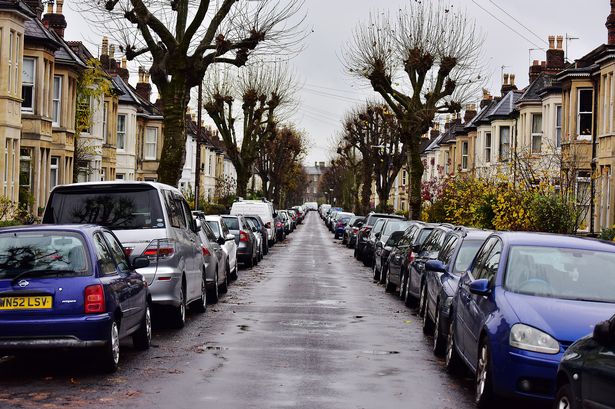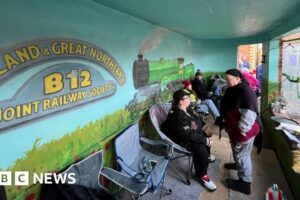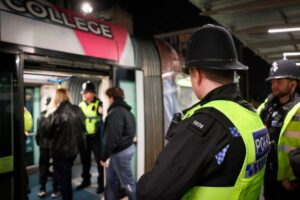
Drivers in several neighbourhoods will soon have to pay for a permit to park near their home
The permits will be introduced over the next few years(Image: Dan Regan/BristolLive)
Opposition Labour councillors have called for £5 million of Clean Air Zone income to be spent on improving buses rather than new resident parking zones. Drivers in several neighbourhoods across Bristol could soon have to pay for a permit to park near their home in the next few years.
Bristol City Council is planning to roll out new resident parking zones to clamp down on commuters parking on residential streets. These could also discourage households from owning multiple cars, so residents might find parking near their home easier. An update was given to councillors on the transport policy committee on Thursday, October 23.
New zones will start to be rolled out in next year and early 2027, with Ashton Gate, Westbury, Luckwell Road, Parson Street, Totterdown and Windmill Hill first in line. Then later on in 2027 and in early 2028, new zones will include Ashley Down, Ashton Vale, Bishopston, Henleaze, Malago Vale, Perrett’s Park, St Andrews, upper Easton, and east Totterdown.
Then there is the potential for three new zones to be developed, depending on local demand. St Werburghs could also be developed from 2028 too. Creating the new zones will cost £7.5 million, with two thirds of this coming from the Clean Air Zone. But permit fees and new pay and display machines are expected to recoup the investment, to later be spent elsewhere.
One group that could be impacted by the new parking permits is carers, who often have to drive across the city to visit people in their homes. However the council issues discretionary carer permits which are tied to the address of the person receiving care, to overcome this issue.
Labour suggested that the £5 million of Clean Air Zone funding would be better spent on improving the buses. Some money has already been spent on creating new bus routes and paying for existing routes to run overnight. And this extra £5 million would go a long way too.
Labour Councillor Tim Rippington said: “In my opinion there are better ways to help improve air quality and connectivity and remove cars off the road. I think we could be spending that £5 million to provide additional bus services or improved frequencies, which would get people from outer parts into the centre and they wouldn’t need to park in residential areas.”
Resident parking zones were first introduced in Bristol more than a decade ago. Their introduction was initially controversial with protesters driving a tank through Clifton and ending up at City Hall. Then in 2016, the newly elected Labour mayor Marvin Rees paused their roll-out and no new ones have been introduced since then. But Greens said the permits are popular.
Green Cllr Emma Edwards added: “Eight years of Labour and they didn’t put a single one in, even though so many people have said that they want this. I would love this to go quicker. It’s a shame it’s not, because I think some areas are going to struggle for a while. People park in them, they get the train, bus or e-scooter in, and they’re using it as free car parking spaces.”
As well as deterring commuters from parking in residential areas, permits discourage wealthy households from owning multiple cars, which is common in some richer parts of Bristol. Some streets where residents struggle to park are clogged up because of families and shared houses having several cars between them. Permits for second or third cars are much more expensive.
The cost of a permit varies in different parts of Bristol, with the majority costing £124 a year for a first car. A permit for a second vehicle costs £224 a year, while a permit for a third vehicle costs £560 a year. Some parts of the city have different prices, such as the city centre.





